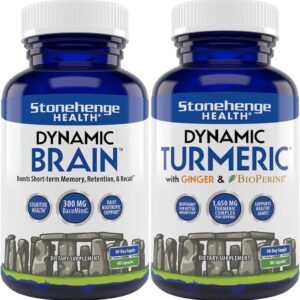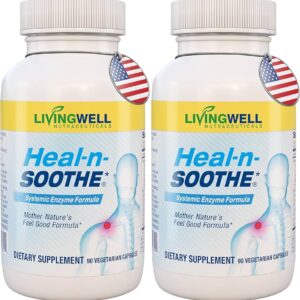Pain Killers
Pain Killers: “Why you need and what’s its function?”
Painkillers are medicines that are used to treat pain. There are a large number of painkillers available and they all have various brands. They can be taken:
- By mouth as liquids, tablets, or capsules.
- By injection.
- Via the back passage (rectum) as suppositories.
Some painkillers are also available as creams, ointments, gels or patches.. The triggered pain can be of different types, like severe, moderate or even moderate. Several types of painkillers are readily available in the market to obtain rid of pain. Pain killers are offered in pharmacy either as over-the-counter drugs; however, some may need a prescription from a medical doctor
What are Pain Killers?
The best painkillers depend on the severity and nature of pain. For mild pain, mild over-the-counter medications such as consumption of Tylenol or acetaminophen and nonsteroidal anti-inflammatory drugs such as aspirin and ibuprofen may be consumed. In case of moderate to severe pain, stronger prescription painkillers such as opioids are more advised; one must remember that there is a risk of addiction involved along with lots of side effects. Local anesthetic lidocaine patches or diclofenac gel is prescribed for localized pain. Medication for nerve pain may include gabapentin or antidepressants. Don’t forget going to a doctor, as the “best” painkiller depends on what your health conditions are.

10 Strongest Painkillers
According to research, this chart categorizes different painkillers by their strength level and typical usage, providing an overview of when each type of medication is most commonly used, ranging from mild pain relief to severe pain management.
| Painkiller | Strength Level | Typical Usage |
|---|---|---|
| Paracetamol | Mild | Mild headache, fever |
| Ibuprofen | Moderate | Arthritis, muscle aches, backaches |
| Tramadol | Strong | Chronic pain, post-surgery recovery |
| Morphine | Very strong | Cancer pain management |
| Oxycodone | A potent semisynthetic opioid | Moderate to severe pain |
| Methadone | Strong | Opioid dependence treatment |
| Vanquish | Medium | Acute management of headache |
| Opana | High strong | Long-term opioid treatment when alternatives are insufficient |
| Oxycontin | High strong | To treat severe pain, for example, after an operation or a serious injury, or pain from cancer |
| Demerol | Medium | Opiates are considered powerful painkillers but can lead to addiction |
General Guidlines of Painkillers
- Painkillers which are NSAIDs (nonsteroidal anti-inflammatory drugs) work on the patho-physiological processes that cause pain, fever, and swelling in the body.
- Corticosteroid pain relievers are typically used for managing musculoskeletal injuries due to their anti-inflammatory effects.
- Nerve pain (caused by damaged or sensitive nerves, e.g., sciatica or shingles) is generally treated with nerve blockers or certain anti-depressants. These medications help regulate the perception of pain by the central nervous system.
- Some painkillers act as muscle relaxants to reduce pain intensity caused by muscle groups. These also serve as sedatives for the central nervous system.
- The main purpose of taking painkillers is to improve quality of life.
- Every painkiller is associated with potential side effects, either short-term or long-term, so it is important to understand and evaluate possible risks before use.
FAQ’S
How to reduce the side effects of painkillers?
Pain medications have side effects such as nausea, dizziness, constipation, or addiction liability (especially opioids). Best practices to reduce side effects are:
- Taking the lowest effective dose for the briefest period.
- Having no alcohol and other sedatives.
- Taking drugs with food to protect the stomach.
- Drinking plenty of water and keeping fiber to avoid constipation.
- Regular follow-up with healthcare providers.
- Avoid Soft drinks and Junk foods
Awarful and disciplined life can reduce risks and improve life quality
What is the strongest pain reliever I can buy?
Pain relievers like ibuprofen (Advil, Motrin), naproxen (Aleve), and acetaminophen (Tylenol Extra Strength) are now irrefutably the finest over-the-counter pain relievers in combating pain in all of us. The drugs relieve nearly all the mild to moderate types of pain, including headache, muscle pain, arthritic pain, menstrual cramp, etc.
In other countries, OTC drugs have minute amounts of codeine combined with acetaminophen or ibuprofen. In others, those combinations are reserved for prescription drug because of the risk of addiction.
Opioids-classified drugs give the most relief from extremely painful conditions
What are the most general kinds of painkillers available?
Classic pain medications come over the counter as NSAIDs in the form of ibuprofen and aspirin, and acetaminophen for mild to moderate. More potent acting pain medicine can be added by prescription; oxycodone and morphine are effective for severe within the medical setting. Combinations of opioids and non-opioids exist as some medications for tailored relief.
Is it safe to use over-the-counter painkillers for long-term periods?
The truth of the matter is that over-the-counter painkillers can be generally unsafe under this simple label for prolonged use.. Extended and long use, especially for ten or more days, can double the risks of side effects, including nausea, and with acetaminophen, damage to the liver. It is wise to seek an outside opinion from a doctor if pain persists for more than a few days.
How can I use the right painkillers for my condition?
Talk to a health care professional: Doctor can evaluate the underlying cause of pain, possible drug interactions with other medications, and individual health factors such as liver or kidney function to help recommend the safest and most effective option.
About medical history and allergies: Inform the doctor regarding any previous allergic responses to painkillers, history of stomach ulcers, cardiovascular issues, or risks of substance dependency.
Phone
+1(856) 946-6647
Location
New Jersey,USA
maryanpharmacy@gmail.com
Store Ours
S-S: 9am – 4pm









